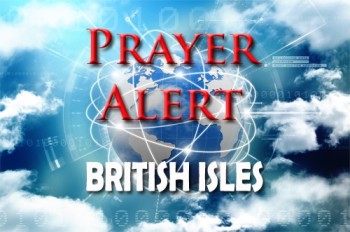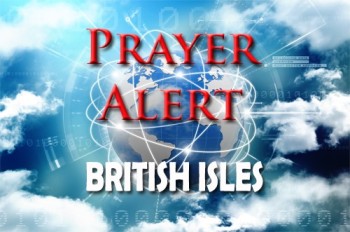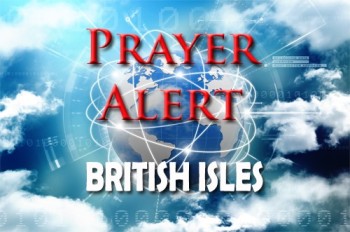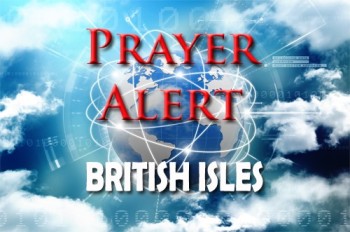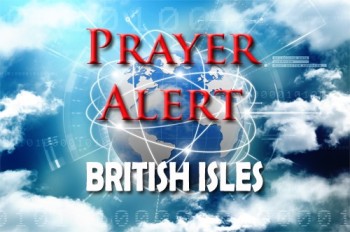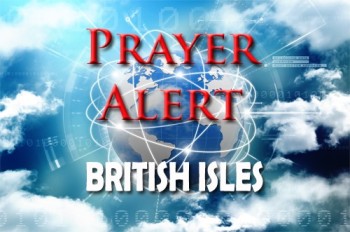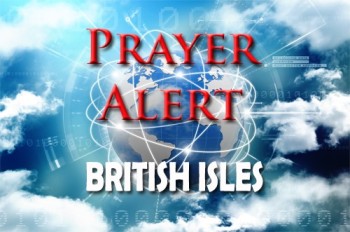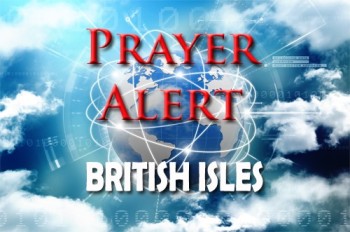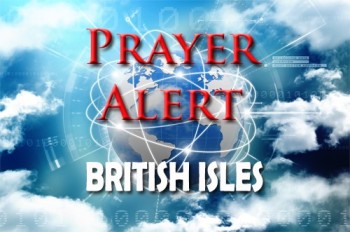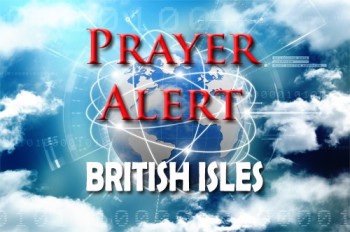Displaying items by tag: Rishi Sunak
UK election: final debate amidst betting scandal
Rishi Sunak and Sir Keir Starmer engaged in a heated final debate before the general election on 4 July, clashing over tax, immigration, gender, and Brexit. Sunak accused Starmer of planning tax hikes and lacking a strategy for illegal immigration. Starmer countered by criticising Sunak's unfunded tax promises and alleged detachment from voters. Both faced tough questions from the audience, including doubts about their suitability as leaders. Starmer also accused Sunak of being 'bullied' into addressing the scandal involving a number of Tory candidates betting on the election date. Sunak defended his actions as necessary due to the seriousness of the matter. See This scandal has hit the Conservatives at a critical moment, potentially jeopardising their already shaky election prospects. Keir Starmer has called for accountability, emphasising that such actions are unacceptable.
PM calls a general election on 4 July
Rishi Sunak surprised many by calling for a UK general election on 4 July, aiming to secure a fifth term for the Conservatives. Parliament will be suspended shortly, marking the start of a five-week campaign. Sunak's decision, earlier than anticipated, came after April's inflation fell to 2.3%, providing him with a narrative of successful governance. Opposition leader Sir Keir Starmer seized the moment, positioning the election as a chance for change from Tory 'chaos.' SNP leader John Swinney and other opposition figures echoed similar sentiments. This election, the first since 2015 not requiring parliamentary approval for the date, will feature new constituency boundaries and require voter ID. It follows a period of political turbulence, marked by scandals, cabinet resignations, Boris Johnson's resignation, and Liz Truss’s brief tenure.
Sunak says infected blood scandal victims will be compensated
Rishi Sunak has pledged 'comprehensive compensation' for those affected by the UK's infected blood scandal, following a damning public inquiry. The scandal, which involved the infection of 30,000 people with HIV and hepatitis through NHS treatments in the 1970s and 1990s, has led to around 3,000 deaths, with more expected. The inquiry found that authorities exposed victims to unacceptable risks and attempted a cover-up, marking it as the NHS's largest treatment disaster. The Government, reportedly setting aside £10 billion, will outline the compensation plan, covering categories like injury, social impact, autonomy, care, and financial loss. Sunak condemned the scandal as a 'day of shame for the British state' and assured the House of Commons of the Government's commitment to funding the compensation. Opposition leader Sir Keir Starmer also apologised for Labour's past involvement and supported swift compensation for victims. The inquiry's 2,527-page report emphasised that the disaster was avoidable and involved deliberate concealment by officials.
Sunak vows to boost defence spending to 2.5% by 2030
Rishi Sunak has committed to increasing UK military spending to 2.5% of GDP by 2030, to address threats from what he calls 'an axis of authoritarian states’. During a visit to Poland, he highlighted the challenging international environment reminiscent of the Cold War era, necessitating this boost in the defence budget. Sunak said that this investment, which will bolster the military industry, does not signal an imminent war but prepares the nation for potential threats. The increased funding will support existing MoD projects, including new frigates, a fighter jet, and nuclear weapons system modernisation, despite the financial strains these expensive programmes have placed on current resources. The commitment aims to set a new benchmark for NATO members, surpassing the decade-old target of 2% GDP for defence spending. This spending strategy is framed as a priority re-allocation within the government budget.
Legal experts call for halt in British arms exports to Israel
A letter signed by over 600 legal experts, including three ex-Supreme Court justices, says that the UK is potentially violating international law by supplying arms to Israel, The pressure on Rishi Sunak to halt arms exports is growing, The government has been facing growing calls to suspend arms exports to Israel after the killing of three British aid workers and four others in an Israeli airstrike. The letter calls for immediate action towards a ceasefire and sanctions against those inciting violence against Palestinians. It also advocates restoring funding to UNRWA, which had been cut amid allegations of staff involvement in the Hamas attack on Israel. The letter’s signatories emphasised the UK's legal responsibilities under international law, including the Genocide Convention. Labour’s shadow foreign secretary, David Lammy, has demanded that the Government disclose legal advice about Israel’s adherence to international law. See also
Cabinet mini-reshuffle after two ministers quit
Rishi Sunak has had to make a cabinet reshuffle after two Tory ministers announced their resignations. Robert Halfon, the skills minister, has decided to step down at the next general election. Known for his advocacy of blue-collar Conservatism, he has been a prominent figure in the party. James Heappey has resigned as armed forces minister, having already announced plans to leave parliament. He praised the armed forces and MOD civil servants, reflecting on his tenure and the ongoing need to support Ukraine. The reshuffle includes moving Nus Ghani to be minister for Europe and Leo Docherty to the ministry of defence. To date 63 Conservative MPs, including notable figures like Theresa May and Sajid Javid, have said they plan not to contest the next election. Sunak commended Heappey's contribution to the Government's defence agenda and acknowledged Halfon's commitment to apprenticeships and social mobility. The departures add to the challenges facing Sunak, as the Conservative Party trails significantly behind Labour in polls. See
Labour secures double by-election victory
In the Kingswood and Wellingborough by-elections, the Labour Party achieved significant victories, causing a setback for Rishi Sunak and the Conservatives. Labour’s Gen Kitchen and Damien Egan won in Wellingborough and Kingswood respectively, overturning substantial Conservative majorities. These results mark the ninth and tenth by-election defeats for the government in the current parliament and represent one of the largest swings from Conservatives to Labour. The defeats add pressure on Sunak amidst a recession and strong by-election performances by Reform UK. Labour leader Keir Starmer celebrated these wins as signs of change and trust in Labour. The Conservatives have now suffered the most by-election defeats for a government since the 1960s, which indicates a shift in public sentiment against them.
Northern Ireland: Sunak to examine proposals for greater defence role
Rishi Sunak has expressed willingness to review a report suggesting Northern Ireland should enhance its role in the UK's national security. He did so during Prime Minister’s Questions, where DUP leader Sir Jeffrey Donaldson praised Sunak for reviving Stormont's political institutions, strengthening the union, and revitalising Northern Ireland's economy and political landscape. He urged Sunak to consider the Policy Exchange report, which recommends increasing Northern Ireland's contribution to national defence. The report highlights Northern Ireland's strategic importance, advocating for expanded naval and air operations against Russian threats and urging collaboration with regional partners for collective security. Sunak commended Sir Jeffrey's leadership and acknowledged the enhanced union due to the return of devolution.
Sunak offers to sacrifice Brexit freedoms to resolve Stormont impasse
Rishi Sunak has proposed compromising some of Britain's Brexit freedoms to encourage the return of devolved government in Northern Ireland. He plans to introduce a requirement that all new laws undergo screening to ensure they won't create additional trade barriers in the Irish Sea, aiming to persuade the Democratic Unionist Party (DUP) to end its two-year boycott of Stormont, which has paralysed Northern Irish politics. All laws would have to come with a ministerial statement confirming they would not significantly harm internal UK trade. If Britain diverges from EU rules, these checks could increase, potentially blocking new laws that differ from Brussels. Unionists argue that the current arrangement harms the Northern Irish economy. While Sunak's offer aims to guarantee no new laws will create more trade barriers between Great Britain and Northern Ireland, critics argue it would tether the UK to European standards and limit the benefits of Brexit. The DUP leader, Sir Jeffrey Donaldson, has been in talks with the government over returning to power-sharing in Stormont but has faced resistance within his party.
Rishi Sunak condemns despicable surge in antisemitism
At London’s Guildhall on Holocaust Memorial Day, Rishi Sunak and others condemned the alarming rise in antisemitism. The day's theme, 'Fragility of Freedom,' highlighted the importance of freedom from fear for all, especially Jewish and Muslim communities. Sunak, in his video address, directly addressed the disturbing increase in antisemitism, emphasising the need to act on the lessons of the Holocaust. He described the resurgence of antisemitism as 'despicable' and 'sickening’. The Chief Rabbi also expressed concern over the ongoing threat of antisemitic attacks. This ceremony comes amid a significant rise in antisemitism and Islamophobia, often connected with the Gaza conflict. Survivors of the Holocaust and other genocides shared their harrowing experiences at the ceremony. Peter Lantos, a Holocaust survivor deported to a Nazi concentration camp at the age of five, recounted the horrors he witnessed, underscoring the day's message of 'never again’.
